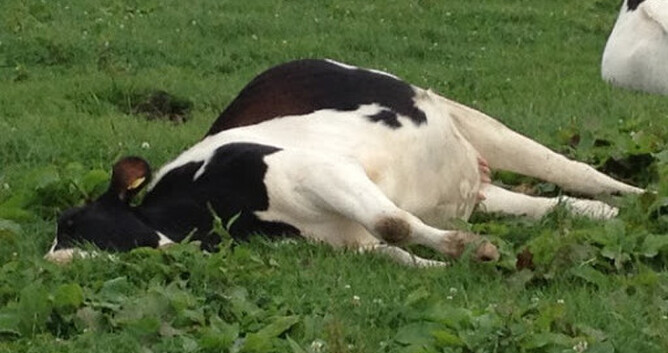Milk fever: it’s something everyone’s familiar with, but something everyone could really do without.
Thankfully, most cases can be prevented with good planning. So, what can you do now, to reduce the risk of milk fever at calving time?
First, it helps to realise what a huge change cows undergo at calving. To start producing colostrum and milk, a cow needs a lot of calcium, fast. On the day of calving, she can’t absorb calcium quickly enough from her food, so she needs to mobilise her own calcium reserves – mostly from her bones.
Being able to do that without too much issue requires good preparation, and that’s where the transition ration comes in. In the three weeks pre-calving, a diet with enough magnesium and a negative dietary cation-anion difference (DCAD) value helps cows prepare for mobilising calcium at calving.
Second, it’s important to understand what DCAD is. Essentially, it’s the balance between certain minerals in the cow’s diet. Some minerals have a negative DCAD value and some have a positive DCAD value.
In practical terms, the mineral that has the most impact on DCAD is potassium. It drives DCAD up, increasing the risk of milk fever. Hence, feeds low in potassium are a good option pre-calving. Mature, stemmy grass or baleage that hasn’t been cut from an effluent paddock are often low in potassium, so can be particularly useful as pre-calving feed.
Brassicas, leafy grass or silage (especially if they’ve had effluent applied) tend to have higher potassium levels. However, the only way to really know the DCAD value of forages is to get samples tested. This is easy to do, and not expensive. Simply bring a sample into the clinic and we can get a full nutritional analysis done for you, including DCAD value.
Knowing the DCAD and overall nutritional value of your forages means you can plan ahead to make a good, balanced transition diet for your cows, with the right pre-calving minerals – including low DCAD salts if necessary. Planning now for an easier life in the spring has got to be a good investment!
Talk to your KeyVet it you’d like to know more about feed testing and transition minerals.

